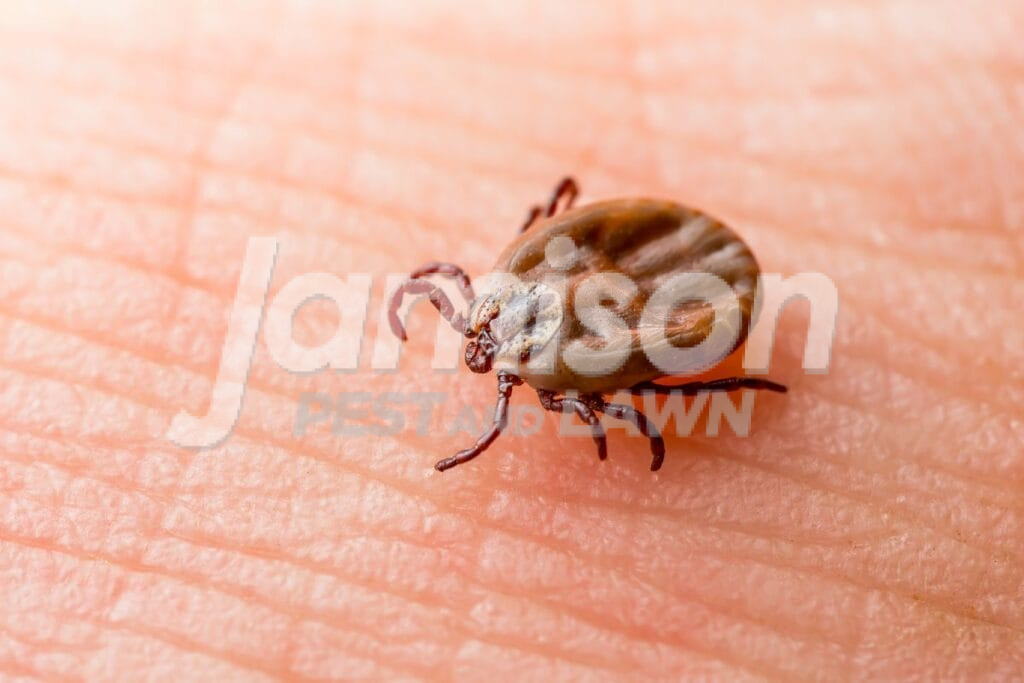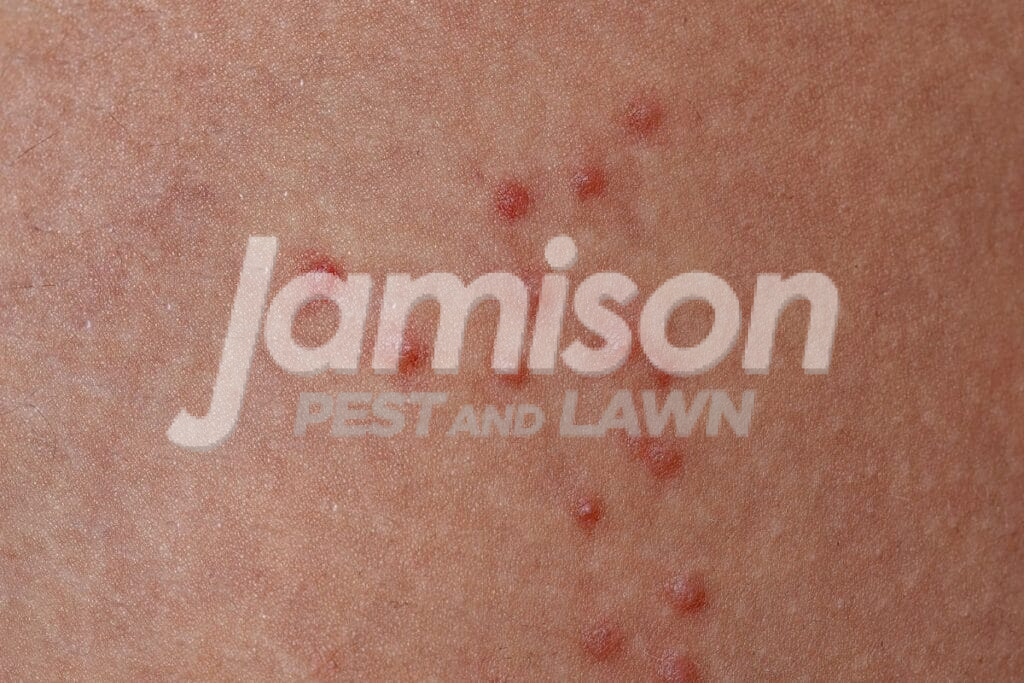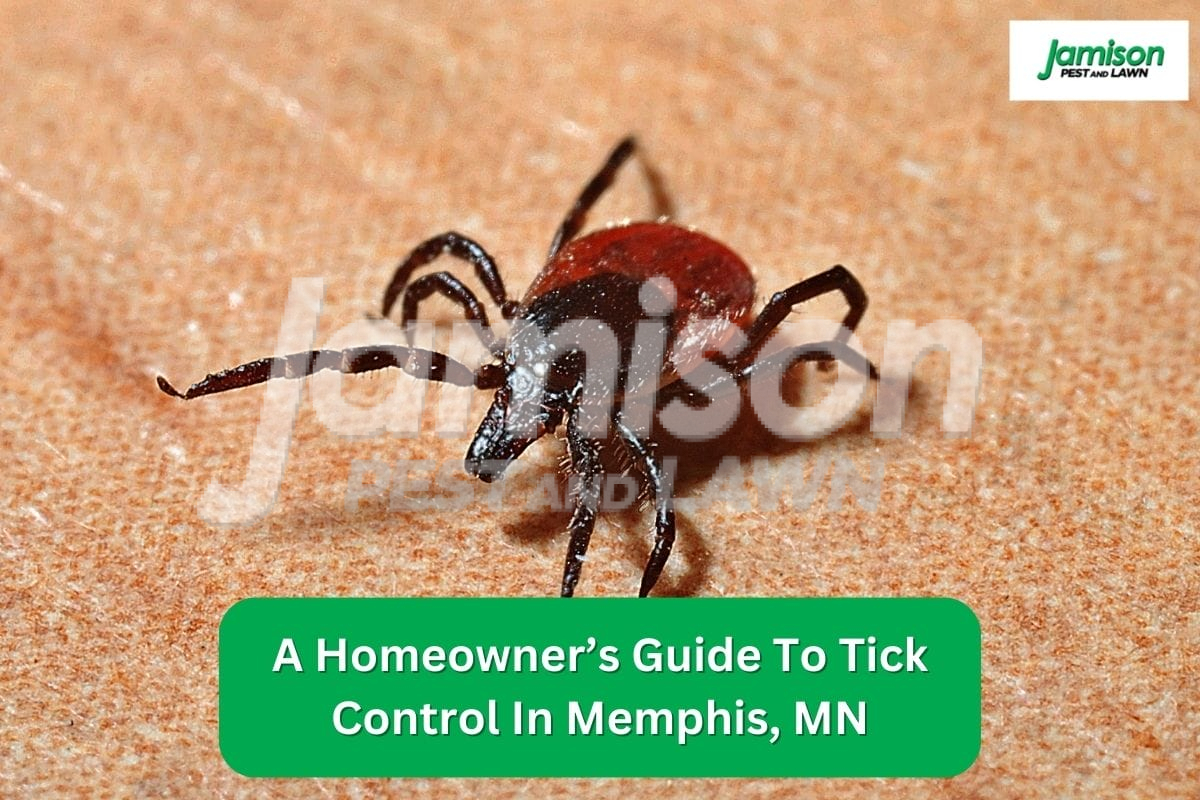As beautiful as Memphis is, it’s no secret that ticks can pose a challenge to your outdoor enjoyment. Ticks, those tiny, annoying pests, are not only a nuisance but can also carry health risks. That’s why it’s important that you implement effective control and prevention strategies, which is what we will discuss today.
In this guide, we will explore practical tips for tick control that can assist you in protecting your family, pets, and property from these unwelcome guests. In our last blog post, we covered the different types of ticks found in Tennessee, and today we will discuss how you can tackle them.
Read on as we navigate through the ins and outs of tick control and prevention in Memphis, TN.
What Are Ticks?

We have talked about ticks previously but if you aren’t sure, ticks are small arachnids classified under the category of Parasitiformes. They are ectoparasites, which means they live by feeding on the blood of mammals, birds, reptiles, and sometimes amphibians. These small bugs attach themselves to animals like deer, mice, and sometimes even people and pets.
These parasitic creatures are infamous for their ability to transmit diseases to animals and humans through their bites.
Issues Ticks Can Cause
Don’t go by their small size, like termites ticks can also cause major problems. They primarily do this through the diseases they can transmit. Some of these issues include:
Health Problems:
Ticks are carriers of various diseases that can affect not only your pets and animals but also you as well. The most common disease ticks carry, which you might already know, is Lyme disease. However this is not the only one. Rocky Mountain Spotted Fever, anaplasmosis, babesiosis, are commonly associated with ticks too. These illnesses can range from mild to severe and may have long term health implications if not treated promptly.
Allergic Reactions:

Beware! Tick bites can trigger allergic reactions too. These reactions may include redness, swelling, itching, or, in severe cases, anaphylaxis.
Impact on Pets and Livestock:

Ticks can harm pets and livestock by transmitting diseases like Lyme disease, ehrlichiosis, or anaplasmosis. In severe cases, these illnesses can be life threatening for animals.
Financial Impact:
Tick-borne diseases can have economic implications due to medical treatment costs, veterinary bills for pets and livestock, and lost productivity or missed work due to illness.
Ticks pose a significant threat not just by their presence but also by the diseases they carry. Being aware of their potential to cause harm reinforces the importance of taking preventive measures to minimize contact and promptly addressing any bites to prevent associated health issues.
Tick Control In Memphis: What You Need To Know
Now that you know how dangerous ticks can be, let’s move to the central point of our blog post: tick control. Take note of these preventative measures to protect your family and pets:
1. Keep Your Yard Tidy:
A tick’s natural habitat is tall grass and bushes, which is why you need to be extra cautious if your home has a lawn or a backyard. Ticks thrive in areas with overgrown grass, dense vegetation, and leaf litter. To minimize their habitats you can do the following things:
Regular Mowing:

Having a lawn of your own allows you to create a space where you can chill out and enjoy the fresh air. However, they also come with several responsibilities. If homeowners neglect their lawn, it makes it easy for ticks to thrive.
To limit tick encounters, cut your lawn regularly and keep the grass short. Ticks prefer tall grass where they can latch onto passing animals or humans.
Also Read: Spring Lawn Care: Tips And Tricks For Homeowners
Trim Vegetation:

Not only the grass, you need to take care of other shrubbery in your lawn too. Trim bushes, shrubs, and low-hanging branches to reduce shady and wet areas where ticks thrive.
Doing this is a step towards tick control for your yard, as it also helps improve airflow and sunlight penetration, making the environment less hospitable for ticks.
Remove Leaf Litter:
Rake and dispose of leaves, as they provide an ideal environment for ticks to hide and breed. It’s important to keep the yard clear of debris that can create wet and shaded areas that attract ticks.
Also read: The Homeowner’s Guide to Tick Control for Lawns in 2024
2. Utilize Tick Repellent Plants:
You might have read in our other blog posts about how different plants can keep bugs and other kinds of pests away from your lawn. This is true for ticks as well. Certain plants have natural properties that repel ticks. Consider planting these around your yard:
Lavender:

When we talk about the most pleasing plants, lavender is high on the list. Thanks to its beautiful color, lavender can add both a pleasant aroma and beauty to your garden. There is one understated benefit too, these keep ticks away. You can plant lavender in sunny areas, as its fragrance deters ticks and other insects.
Garlic and Lemon Grass:

You can also plant garlic or lemon grass. Both of these can help repel ticks as they have a distinct, strong odor. They can be strategically placed around the yard or garden beds.
Marigolds:

These flowers contain natural chemicals that repel ticks. Planting marigolds in flower beds or around the perimeter of your yard can act as a natural deterrent.
Also Read: What Are Some Mosquito Repellent Plants?
3. Create a Barrier:
Ticks often migrate from woodlands into yards. To create a barrier between these area and your lawn:
Use Landscaping Features:
Install a barrier using gravel, wood chips, or a mulch border around the yard’s perimeter. This helps create a transition zone that makes it harder for ticks to move into your yard from wooded areas.
Regularly Inspect Boundaries:
Periodically check the barrier and ensure it’s intact. Repair any gaps or breaks to maintain an effective blockade against ticks.
4. Create a Tick-Safe Zone:
Designating specific areas in your yard as tick-safe zones can minimize direct contact with the pests.
Fenced Play Areas:
Install a fence around a play area, preferably in an open, sunny location away from wooded areas. This space can be treated with repellents, making it a safer zone for children to play without the risk of encountering ticks.
Outdoor Seating Areas:

Similar to play areas, designate outdoor seating areas or patios as tick-safe zones. Use gravel or a barrier to separate these spaces from wooded areas, reducing the likelihood of ticks entering these areas.
5. Tick Repellents:

If you reside in a tick-prone area, then it may be crucial to use EPA-approved tick repellents. These repellents, designed to deter ticks, protect both skin and the clothes you wear.
- Permethrin-based repellents are effective for your clothes. These form a barrier that prevents ticks from latching onto fabric. Treating clothing items like pants and socks with permethrin provides lasting protection.
- For your skin, you can opt for DEET-based formulations. DEET effectively repels ticks when applied to exposed skin as directed.
This combination of permethrin and DEET-based repellents significantly reduces the risk of tick encounters during outdoor activities.
Here are some things to keep in mind:
- Follow product instructions carefully.
- Apply repellents to exposed skin and clothing before going outdoors and reapply as directed for continual protection.
6. Contact A Professional:
When tick infestations pose ongoing challenges despite your best efforts, it is important that you seek professional pest control services specialized in tick control. Professional pest control experts possess the expertise and tools necessary to address tick control for your yard and pets. They can conduct thorough inspections of your property, identifying areas where ticks thrive and providing targeted strategies to eliminate infestations. Additionally, pest control professionals offer guidance on preventive measures to minimize future infestations, providing valuable insights and ongoing support to safeguard your home and family against these persistent pests.
Jamison Pest and Lawn: Your Go To Company For Tick Control In Memphis!
If you or your beloved pet has been bitten by ticks or you just want to make sure that these creatures don’t come into your home or yard, contact the team at Jamison Pest and Lawn.
Our team of pest control experts employ a range of safe and specialized treatments, such as tailored pesticide applications or integrated pest management techniques, ensuring a comprehensive approach to tick eradication in Memphis.
When you consult with our tick control experts, you get insights about long term solutions, restoring comfort and peace of mind in your living environment. So don’t wait! Connect with us today at (901) 452-1505.




